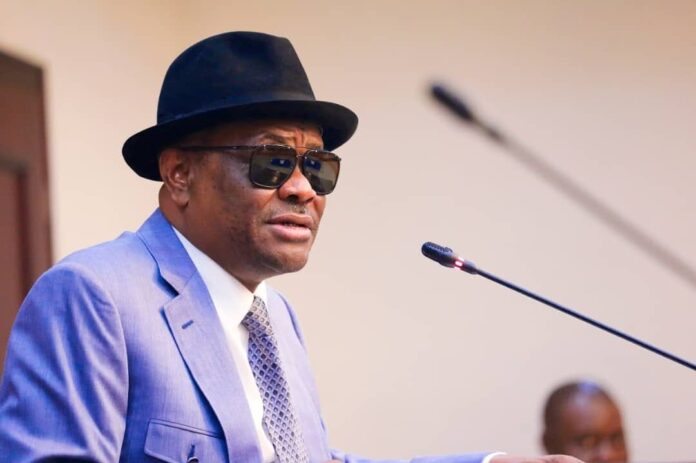In a move that has sparked both praise and concern, Minister of the Federal Capital Territory (FCT), Nyesom Wike, has asserted his independence in project execution, stating that he only requires the President’s approval. This declaration comes amid a publicized rift with FCT Senator Ireti Kingibe. Wike’s approach has yielded significant results, with several key projects completed within nine months. However, it also raises questions about potential misuse of power and the importance of collaboration.

Wike’s strategy involves contractor engagement, revenue generation, and hands-on oversight. He has successfully brought most contractors back to work, boosted FCT revenue, and personally inspected project execution. Completed projects include the Vice President’s official residence, Abuja Rail Mass Transit System, and Inner Southern Expressway Extension. These achievements demonstrate Wike’s commitment to effective governance and project delivery.
Supporters see Wike’s stance as refreshing and necessary, ensuring efficient governance without bureaucratic delays. They argue that seeking approval from multiple authorities often hinders progress, and Wike’s direct engagement with contractors and hands-on oversight signal a commitment to efficient governance. However, critics worry about potential favoritism, suboptimal project choices, and exclusion of valuable input from experts and local communities.
To address concerns, Wike maintains transparency, adheres to due process, engages with stakeholders, and welcomes oversight and audits. He ensures that project decisions are transparently communicated, provides regular updates on project progress, budget allocations, and expenditure. By maintaining an open dialogue with the public, he invites scrutiny and encourages accountability. Wike also adheres to legal and regulatory frameworks governing project execution, justifying any deviations based on project urgency or unique circumstances.
Stakeholder engagement is another crucial aspect of Wike’s approach. He actively engages with community leaders, experts, and civil society organizations, incorporating their input into project choices. Public consultations and feedback mechanisms allow for course corrections and adjustments. Independent oversight bodies monitor project implementation, and Wike cooperates with audits, ensuring compliance and preventing abuse of power.
While there are no reports of ongoing investigations, the impact of Wike’s projects remains a subject of public discourse, especially in light of the recent rift between Wike and Senator Ireti Kingibe. As the FCT continues to evolve, Wike’s approach sets a precedent for decisive leadership in infrastructure development, inviting scrutiny and encouraging accountability.
Wike’s bold move has accelerated project delivery, but also highlights the importance of balancing autonomy with accountability. As the public continues to weigh in on his approach, it is clear that effective governance requires both decisive leadership and collaborative spirit. Wike’s commitment to transparency, due process, and stakeholder engagement serves as a model for balancing autonomy with accountability, ensuring that the FCT’s transformation benefits all stakeholders.



